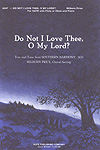- |
User Links
What Adam's Disobedience Cost
Hymn Information
- First Line
- What Adam's disobedience cost
- Author (st. 1-4)
- Fred Pratt Green
- Author (st. 5)
- Carol Bechtel
- Tune Name
- DETROIT
- Harmonizer
- Emily R. Brink, b. 1940 (1986)
- Tune Source
- <i>Supplement to Kentucky Harmony</i>, 1820
- Topic
- Biblical Names and Places: Eden · Church Year: Christmas · Fall and the Human Condition · God's: Judgment · Jesus Christ: King
Copyright Information
- Text Copyright
- © 1978 Hope Publishing Company · St. 5 © Hope Publishing Company
- Tune Copyright
- Harm. © Faith Alive Christian Resources
- Reprint/Projection Information
- Words: Permitted with a license from CCLI.com or from OneLicense.net. If you do not own one of these licenses, please contact the copyright holder for permission.
- Music: Permitted with a license from CCLI.com or from OneLicense.net. If you do not own one of these licenses, please contact the copyright holder for permission.
Full Text
Scripture References
- ·
Thematically related:
- st. 1 = ·
- st. 2 =
- st. 3 = ·
- st. 5 =
Further Reflections on Scripture References
For stanza 1, the disobedience of Adam and the immediate cost is documented in Genesis 3:14-24. The full eventual cost, and God’s deliverance, is explained by Paul in Romans 5:12-21.
Stanza 2 refers to the Ark of mercy that rode the flood, a reference to the narrative in Genesis 6:1-8.
Stanza 3’s reference to the “little child” and all that was regained through him is found in Matthew 1 and 2, Luke 2, and a deeper explanation of his significance in John 1.
The “new Jerusalem” referred to in stanza 5 is clarified in Revelation 21.
Confessions and Statements of Faith References
Further Reflections on Confessions and Statements of Faith References
This song speaks about the fall into sin and the resulting sinfulness of the human race. God’s people are called to be aware of the fall. Belgic Confession, Article 14 summarizes the fall and its impact with these words: “They subjected themselves willingly to sin and consequently to death and the curse...”
Heidelberg Catechism, Lord’s Day 3, Question and Answer 7 points out that “this fall has so poisoned our nature that we are all conceived and born in a sinful condition.” Yet, God’s people are also called to know about God’s grace, which is freely given, despite the depravity of the world. Our World Belongs to God, paragraph 14 claims that “we prove each day apart from grace that we are guilty sinners...”
What Adam's Disobedience Cost
Additional Prayers
we grieve for all of the pain and despair
that cascades down from
one generation to the next
because of human pride and arrogance.
Yet we marvel at the mystery of your promise
that Adam’s heir would become
Adam’s Savior and Lord.
We rejoice in hope that even though
in Adam all die,
so in Christ all will be made alive.
Send your Comforter, we pray,
to strengthen us in this hope
through Jesus our Lord. Amen.
We make each day a judgment day.
Each day a judgment day.
Each day a judgment day.
Each day a forgiveness day till Jesus comes again. Amen.
What Adam's Disobedience Cost
Hymn Story/Background
Author Information
Composer Information
In 1977 she was appointed to the Psalter Hymnal Revision Committee, and in 1983 moved to Grand Rapids in a change of careers to become the first music and worship editor of the Christian Reformed Church. She was the founding editor of Reformed Worship; editor of the Psalter Hymnal (1987), Songs for LiFE (1994), Sing! A New Creation (2001, 2002); co-editor with Bert Polman of The Psalter Hymnal Handbook (1998), and editor of many other worship-related publications. Since 1984 she has been an adjunct professor at Calvin Theological Seminary, directing the seminary choir in the first years, and introducing courses on church music and worship before being granted emeritus status in 2009.
Her ecumenical work began with the Hymn Society in the United States and Canada, becoming the first woman president (1990-1992); in 2006 she was named a Fellow of the society in recognition of distinguished services to hymnody and hymnology. She served in both local and national offices of the American Guild of Organists, and has been a member for more than twenty years of the Consultation on Common Texts, serving as chair from 2008 to 2014.
In 2002, she became a Senior Research Fellow at the Calvin Institute of Christian Worship, contributing to The Worship Sourcebook and other publications; serving as program chair of the annual Symposium on Worship; and helping to plan and participate in worship conferences in more than fifteen countries.


 My Starred Hymns
My Starred Hymns





